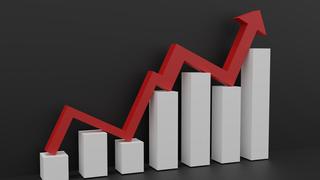US bond yields fell to three month lows and a broad gauge of Asian shares rose on Friday as investors saw enough one-off factors in US consumer price data to back the Federal Reserve's conviction that rising inflation will be transitory.
Some economists say the rise in CPI reflected short-term adjustments related to a reopening economy, and many investors appear to be confident that the Fed is deftly handling a rebound in economic growth - even as questions remain about how it defines "transitory".
Data overnight showed US consumer price index posted its biggest year-on-year increase at 5 per cent since August 2008,following a 4.2 per cent rise in April. However, there were hefty contributions from short-term rises in airline ticket prices and used cars, raising some doubts about underlying inflationary pressures.
At the same time, US Labor Department data also showed the lowest level of new claims for unemployment benefits in nearly 15 months last week.
In morning trade in Asia, MSCI's broadest index of Asia-Pacific shares outside Japan ticked up 0.18 per cent. Japan's Nikkei gave up early gains to turn 0.11 per cent lower.
"Last night's print is just one in a long string of evidence that inflation is not just rising, but is more than just transitory base effects," said Rob Carnell, Asia-Pacific chief economist at ING in Singapore.
"But the Fed, which meets next week, can still point to no deviation of inflation expectations to back up its continued mantra of transitory inflation. The market is buying that for now."
Seoul's Kospi was up 0.32 per cent, Australian shares added 0.14 per cent and Hong Kong's Hang Seng index gained 0.53 per cent. Chinese blue-chip shares were down more than 1 per cent as consumer staples firms retreated following two days of gains.
Broad credit growth in China continued to slow in May, as the country's central bank seeks to contain rising debt in the world's second-largest economy.
"Because of very strong external demand the negative impact from credit deceleration should be OK in the next three to six months, mainly thanks to the strong demand from the US," said Larry Hu, economist at Macquarie in Hong Kong.
"(But) once the demand from the US is back to normal then I think the Chinese economy is going to feel more pain from the credit tightening."
On Thursday, US stocks rallied to record highs, with the S&P 500 gaining 0.47 per cent to an all-time high of 4,239.18. The Dow Jones Industrial Average rose 0.06 per cent and the Nasdaq Composite added 0.78 per cent.
The 10-year US Treasury note's yield dipped to a three-month low of 1.4340 per cent, down from Thursday's close of1.459 per cent. The 30-year yield was at 2.1270 per cent, it lowest level since Feb. 26.
The spread between the 2-year and 10-year yield also hit its narrowest level since late February, as inflation expectations eased.
Commodities and currencies
The dollar fell as yields dipped, with the greenback's index trimming 0.06 per cent to 90.018. The euro gained 0.12 per cent to $1.2183, but the Japanese yen weakened to 109.40 per dollar.
Hopes for strong economic demand following the US unemployment claims report lifted oil prices to two-year highs on Thursday. In Asia trade, global benchmark Brent crude was last at $72.36 per barrel, down 0.22 per cent on the day, and US West Texas Intermediate crude dipped 0.26 per cent to $70.11 per barrel.
Spot gold crept 0.07 per cent higher to $1,899.39 an ounce on a softer dollar.







Comments
Comments have to be in English, and in full sentences. They cannot be abusive or personal. Please abide by our community guidelines for posting your comments.
We have migrated to a new commenting platform. If you are already a registered user of TheHindu Businessline and logged in, you may continue to engage with our articles. If you do not have an account please register and login to post comments. Users can access their older comments by logging into their accounts on Vuukle.